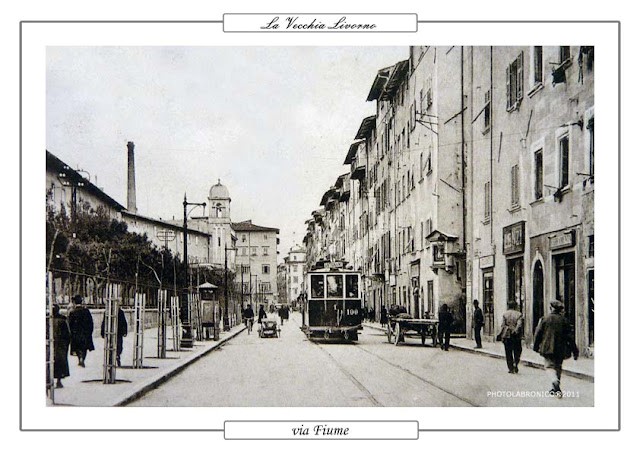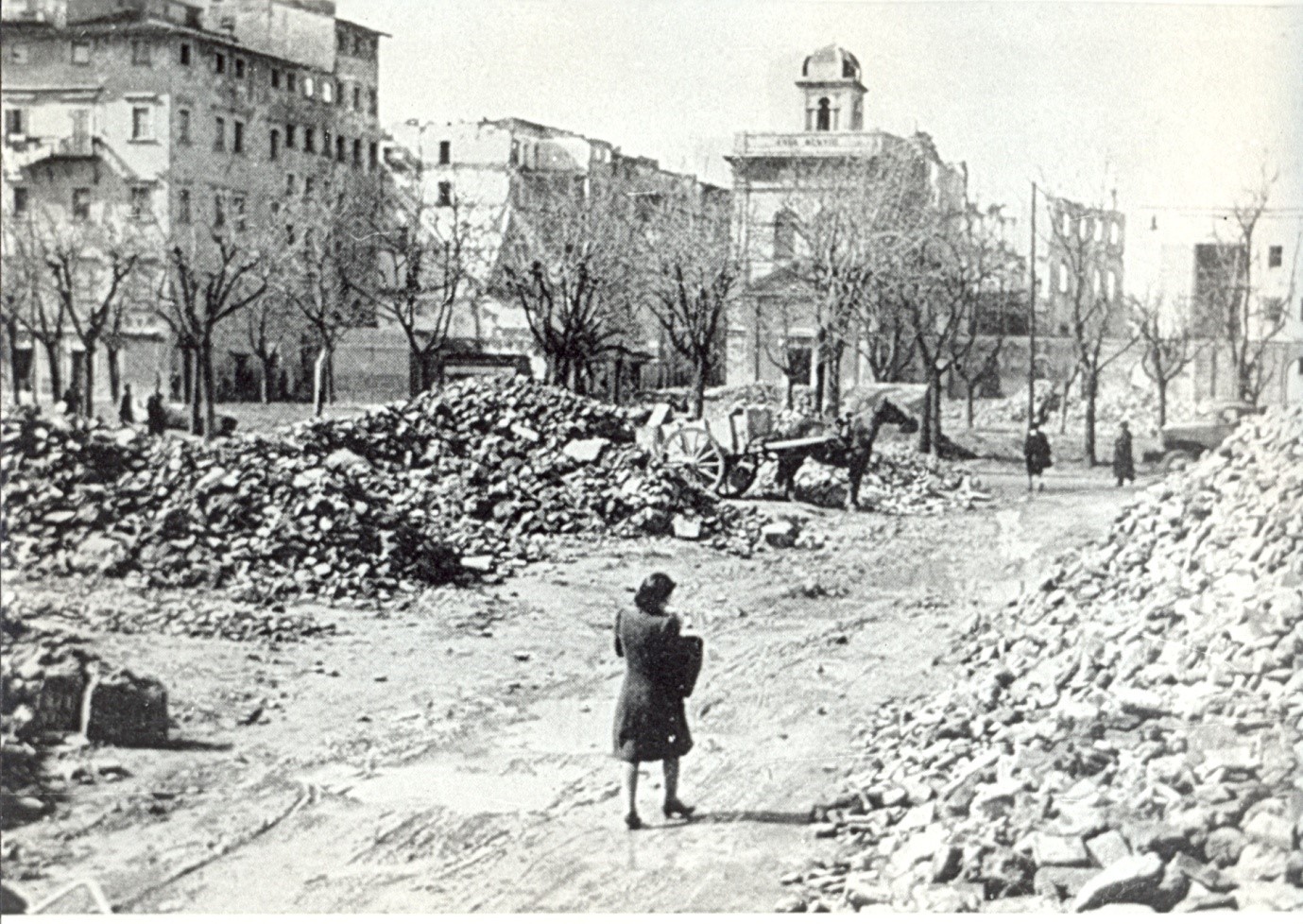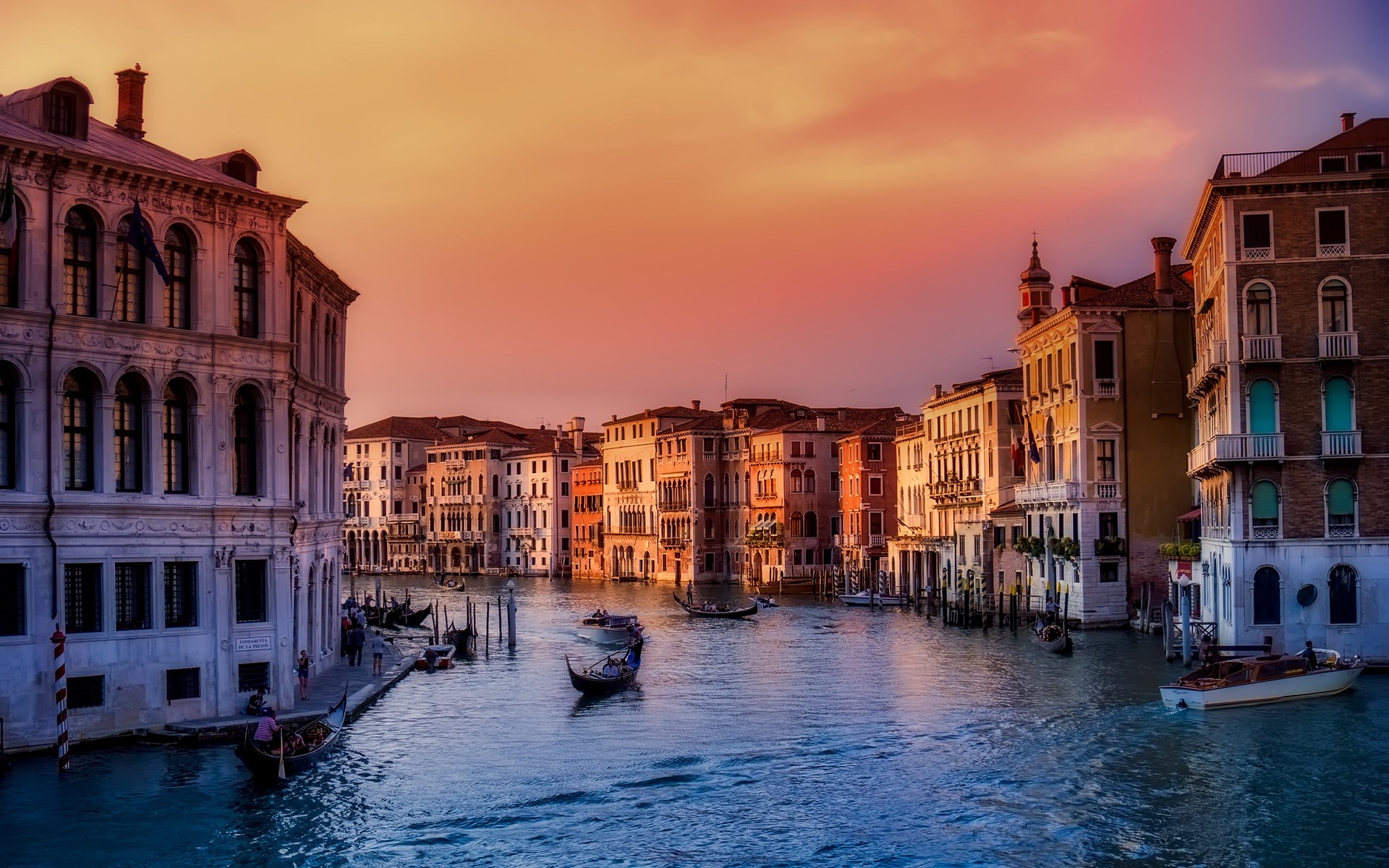A surname can carry more history than people realise.
It can also trace global changes of war, immigration, fortune, and the markets.
Many Jewish people have inherited anglicised names. I am not Jewish, but I too have an anglicised surname.
Angelo Domenico Malevolti Tremamondo, the son of a wealthy merchant, came of age working in his father’s counting house. The family carried out its business on this street:

Vintage photo of via Fiume, formerly via del Giardino, Livorno, Italy. Source: La Vecchia Livorno
The street was largely reduced to rubble during the Second World War:

Source: Toscana Novecento
Well, it turned out young Angelo Domenico Tremamando got tired of the merchant counting house in Tuscany. He moved to London to pursue business, principally building a successful fencing school. In fact, he was still teaching fencing at Eton College when he died at the age of 85.
There, he became known as Domenico Angelo. His son was Henry Angelo. Eventually, an adventurous young Stewart Richard Angelo came out to New Zealand and settled in Queenstown.
This family story, on my father’s side, is like that of many. The story of young men striving for adventure and success. Moving across the world and changing their life and that of their descendants.
Today, I am an investor in the global markets. I started with my first NZX shares at the age of 17. I have a simple approach. To try and find incredible value in businesses that I am happy to own forever.
It is a pity that the New Zealand share market has become so sparse and picked bare. I can hardly remember the last time we had a decent IPO. Covid and years of the public sector crowding out private enterprise put paid to that.
The US market is extremely difficult. It’s hard to find anything that a myriad of analysts are not already across. There, it is often easier to board a trend — as we did somewhat with the tech boom of 2023.
Europe (and the UK) is a different story. For years, it has presented strong value. With the ECB now possibly set to front run the Fed on rate cards, we may well see European markets rising faster.
Home of the Borsa di Milano (Italian Stock Exchange). The middle finger statue was meant to be a temporary installation, but the city liked it so much they decided to keep it indefinitely. On closer inspection, the statue has the other fingers eroded away by time, suggesting to me that wealth endures.
Source: Paolo Margari / Flickr
Since 2019, my favourite country in Europe seems to have finally begun to pull itself out of the quagmire. It has been the strongest-growing of Europe’s major economies. Despite being hit hard by Covid, real GDP is now almost 5% higher than it was in 2019.
Prime Minister Giorgia Meloni also appears to be enjoying a rare period of political stability. The FTSE MIB (an index of Milan’s 40 leading stocks) has powered ahead over 26% over the past year, with strong bank earnings underpinning a new growth trend.
Is the rising streak done yet? Falling interest rates at some point, courtesy of the ECB, could reveal further intrinsic value waiting to shine.
By P/E ratio, Italian stocks trade at an average just below 10. They still appear cheap in relation to their 10-year average of just under 12, and are cheaper than world stocks, European stocks and developed markets ex-US.
Well, Italy does have high public debt at almost 140% of GDP, and future growth does look sluggish. But as we’ve seen with the recent run-up in Japanese markets, capitalised on by one Warren Buffett, valuable companies can sit mispriced. Particularly when negative country outlook clouds market prices.
This week, we report on two Italian businesses.
Are they sleeping lions or hobbled dogs?
I will visit Italy later this year to learn more on the ground.
Meanwhile, here is the story of the next potential renaissance.
Your first Quantum Wealth Report is waiting for you:

